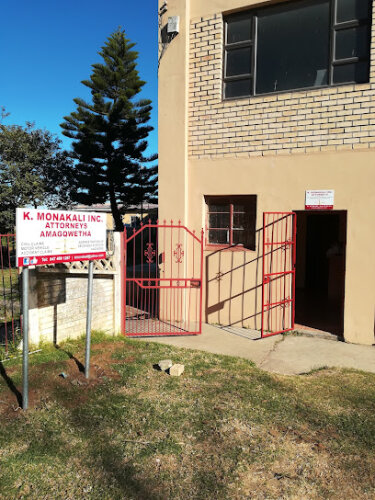Best Employment Rights Lawyers in East London
Share your needs with us, get contacted by law firms.
Free. Takes 2 min.
List of the best lawyers in East London, South Africa
About Employment Rights Law in East London, South Africa
Employment rights in East London, South Africa, are governed mainly by national legislation such as the Labour Relations Act, Basic Conditions of Employment Act, Employment Equity Act, and local municipal by-laws. These laws are designed to protect both employees and employers, ensuring fair treatment, proper working conditions, and equal opportunities in the workplace. In East London-a key industrial and economic hub in the Eastern Cape-these laws are actively implemented in diverse sectors such as manufacturing, automotive, retail, and services.
Why You May Need a Lawyer
Legal advice on employment rights can be crucial in numerous situations. Common scenarios include unfair dismissal, workplace discrimination or harassment, disputes over contracts or working hours, problems with wages or benefits, occupational health and safety issues, and challenges linked to retrenchment or redundancy. Employers may also seek advice to ensure they are compliant with the law or when facing disputes from employees. A lawyer familiar with both national and local employment practices in East London can help clarify your rights and obligations, provide effective representation, and guide negotiations or legal proceedings.
Local Laws Overview
South Africa's employment laws apply throughout the country, including East London, but there may be local nuances influenced by regional industries and economic factors. Key aspects relevant to East London include:
- Labour Relations Act: Sets out rights regarding fair dismissal, union representation, workplace disputes, and collective bargaining.
- Basic Conditions of Employment Act: Covers minimum wage, hours of work, leave, overtime, notice periods, and workplace record-keeping.
- Employment Equity Act: Addresses non-discrimination and affirmative action, aiming to promote equality in the workplace.
- Occupational Health and Safety Act: Mandates safe work environments and procedures for dealing with workplace injuries or illnesses.
- Sector-specific Regulations: In industries prominent in East London, such as automotive manufacturing, additional rules may apply regarding apprenticeship, safety, and dispute resolution.
Employers and employees should also be mindful of the specific union agreements or bargaining council rulings that may affect their sectors locally.
Frequently Asked Questions
What is considered unfair dismissal in East London?
Unfair dismissal occurs when an employee is terminated without a valid reason or proper procedure. Reasons such as discrimination, whistleblowing, or lack of disciplinary steps may render a dismissal unfair according to South African law.
How do I know if I am employed or an independent contractor?
Employment status is determined by the nature of your working relationship, including control over work, payment terms, and integration into the company. If you are unsure, it is best to consult a lawyer or the Department of Employment and Labour.
Can my employer change my working conditions without my consent?
Any material changes to your employment contract-such as working hours, pay, or job duties-should be mutually agreed upon. Unilateral changes can lead to disputes and may be unlawful.
What are my rights regarding workplace discrimination?
Employees are entitled to a workplace free from discrimination based on race, gender, age, disability, religion, or other prohibited grounds. The Employment Equity Act provides strong protection and recourse if discrimination occurs.
What should I do if I am not being paid the minimum wage?
If you are earning less than the national or sector-specific minimum wage, you can approach the Department of Employment and Labour or a labour lawyer to seek enforcement of your rights.
How much notice must my employer give before terminating my contract?
Notice periods vary by length of service, typically ranging from one to four weeks. Your employment contract or a collective agreement may specify longer periods.
Can I be dismissed for refusing unsafe work?
You have the right to refuse work that poses a serious and immediate danger to your health or safety. The Occupational Health and Safety Act protects employees who blow the whistle on unsafe practices.
What is the CCMA and can I approach it directly?
The Commission for Conciliation, Mediation and Arbitration (CCMA) is a dispute resolution body you can approach for workplace disputes like unfair dismissal, unfair labour practice, or discrimination-no legal representation is required to start the process.
Are there any local organizations in East London that can help me?
Yes, several NGOs, trade unions, and provincial offices of the Department of Employment and Labour offer guidance and support for employment-related disputes.
How long do I have to act if I want to challenge my dismissal?
You must refer an unfair dismissal dispute to the CCMA within 30 days of the dismissal. For discrimination matters, the deadline is typically six months, but prompt action is recommended.
Additional Resources
If you need more information or assistance, these resources may be helpful:
- Department of Employment and Labour (East London Office): For general enquiries, advice, or complaints.
- Commission for Conciliation, Mediation and Arbitration (CCMA): Facilitates dispute resolution between employees and employers.
- Trade Unions: Such as NUMSA and FEDUSA, which are active in East London and offer legal support to their members.
- Legal Aid South Africa: Provides free or affordable legal services to qualifying individuals.
- Law Society of South Africa: For finding qualified local attorneys specializing in employment law.
- Provincial Bargaining Councils: Offer sector-specific advice and dispute resolution in industries like manufacturing and retail.
Next Steps
If you believe your employment rights have been violated or you are facing a work-related dispute in East London, South Africa, the following steps can guide you:
- Collect all relevant documents such as employment contracts, payslips, correspondence, and any notices or records of the incident.
- Communicate formally in writing with your employer to try and resolve the issue internally.
- If unresolved, consult the Department of Employment and Labour or a trade union for guidance.
- Seek legal advice from a local employment rights lawyer for complex matters or if legal representation becomes necessary.
- Consider mediation or dispute resolution services at the CCMA or relevant bargaining council.
- Act promptly-many employment law processes have strict time limits for raising disputes or taking legal action.
Remember, legal rights and remedies are available to both employees and employers. Taking early, informed action helps protect your interests and ensures the best possible outcomes.
Lawzana helps you find the best lawyers and law firms in East London through a curated and pre-screened list of qualified legal professionals. Our platform offers rankings and detailed profiles of attorneys and law firms, allowing you to compare based on practice areas, including Employment Rights, experience, and client feedback.
Each profile includes a description of the firm's areas of practice, client reviews, team members and partners, year of establishment, spoken languages, office locations, contact information, social media presence, and any published articles or resources. Most firms on our platform speak English and are experienced in both local and international legal matters.
Get a quote from top-rated law firms in East London, South Africa — quickly, securely, and without unnecessary hassle.
Disclaimer:
The information provided on this page is for general informational purposes only and does not constitute legal advice. While we strive to ensure the accuracy and relevance of the content, legal information may change over time, and interpretations of the law can vary. You should always consult with a qualified legal professional for advice specific to your situation.
We disclaim all liability for actions taken or not taken based on the content of this page. If you believe any information is incorrect or outdated, please contact us, and we will review and update it where appropriate.










